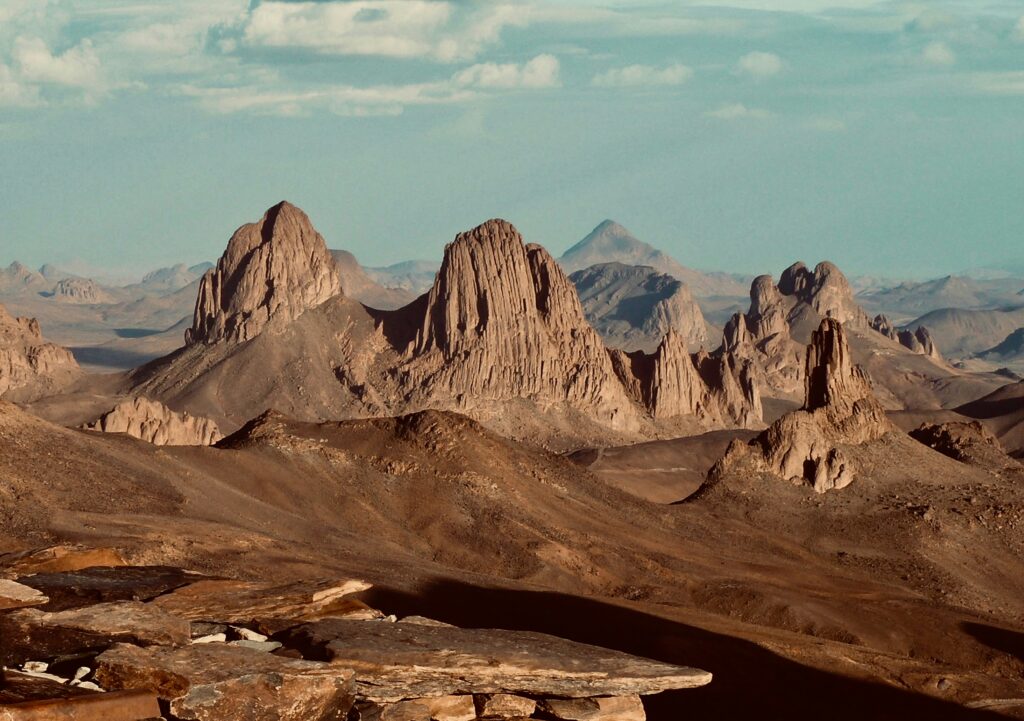Algeria: The Desert Nation Opening Up to the World

For years, Algeria's enormous country size—Africa's largest country—has been one of the world's best travel secrets. From the Mediterranean Sea coast to the heart of the Sahara Desert, this nation has been challenging for foreign tourists to access. But as we’ve just discovered through CNN's fascinating profiles, this amazing country is now opening its doors to the world, and what lies behind them is nothing short of breathtaking.
A Desert Renaissance
The numbers are indicative. In 2023, Algeria welcomed nearly 3.3 million tourists. It wasn't a coincidence. After decades of low tourism numbers following the termination of French colonialism in 1962, the Algerian government has embarked on a measured strategy to promote its natural and cultural beauties.
A visa-on-arrival system introduced in January 2023 is perhaps the most dramatic alteration. What once was a challenging bureaucratic ordeal has been made easy, and visas are now virtually guaranteed for Saharan tourists. The policy shift, along with new Air Algerie flights from Paris to the oasis town of Djanet, sends a clear message about tourism development.
Tassili n'Ajjer: The World's Largest Open-Air Museum
The ultimate in Algerian desert hiking has to be the UNESCO World Heritage site, Tassili n'Ajjer National Park, coveringnearly 50,000 square miles of Sahara. Imagine towering sandstone ridges sculpted by wind and time over seven million years to produce what residents correctly describe as "forests of rock."
What makes this moonscape truly extraordinary is what humans left behind so many millennia ago. Buried in these natural works of art are as many as 15,000 prehistoric paintings and engravings, from 10,000-750 BCE. These paintings of ancient artwork reveal a snapshot of daily life, rituals, and a shifting environment over five distinct periods, providing us with an interesting glimpse back in time long before the advent of written history.
The Authentic Desert Experience
Getting to Tassili is not your ordinary tourist escapade—and that's precisely why it's so extraordinary. As CNN's story reveals, getting to this prehistoric art takes an amazing journey: a 75-mile trek over rough terrain with Touareg guides likeBaba Atanof and Sidi Baika, members of the indigenous nomadic tribe of the region.
This is true unplugged travel: a week of no showers, flush toilets, electricity, cell phone reception, or Internet. In return, you get something rarer in today's networked world: immersion in nature, the rhythm of walking by day and camping by night, and the opportunity to see the world through the eyes of people who have lived in the desert for centuries.
The Touareg guides share their knowledge not just of navigating but of desert survival, traditional tea ceremonies, constellations, and medicinal uses of local plants. There is something profoundly emotional about being aware that the Saharan cypress trees you are walking past are over 4,000 years old, or learning that spots you've been brought to believe are completely dry have hidden sources of water.
Beyond the Desert
While the Sahara desert covers 83% of Algeria's territory, Algeria is very diverse. The Tell region, a northern coastal strip, boasts Mediterranean seashores, vineyards, mountains, and beautiful Roman ruins. UNESCO-protected sites like Djémila, Timgad, and Tipasa to compete with better-known destinations in Italy or Greece.
Interposed between desert and sea are Saharan Atlas mountains and oases—transition belts which blend Mediterranean and Saharan elements. Such geographical diversity means that Algeria has the potential to offer tourists anything from beach holidays and history tourism to adventure travel and cultural experiences.
Tourism with Purpose
What is perhaps most interesting about Algeria's approach is that it does not seem to be constructed around mass tourism.The government's Master Plan for Tourism Development 2030 aims at promoting quality over quantity maximisation. This is an intelligent approach that may salvage what is special about the country and introduce it to visitors gradually.
The current desert tourism model—small-scale group tours led by seasoned local guides—provides local communities with economic benefits and brings visitors authentic experiences well away from the artificial environment of most tourist resorts. As one visitor reported to CNN, it's essentially a "desert spa" with regular physical activity, wholesome food, fresh air, and plenty of rest—all without the artificiality of a commercial spa retreat.
A New Frontier for Adventurous Travelers
To the adventurous traveller who hungers for genuine experience, immersion in native culture, and untouched landscapes out of reach for the general public, Algeria represents one of the last great frontiers. The CNN article succinctly captures the desert experience's incredible ability to attune visitors to silence, reduce life to its essence, and put human life into context against the grandeur of nature.
As the tour guide Sidi Baika views philosophically, "In the desert, you have more time. With yourself, with your mind. In one week, you can review all of your life."
In today's more frantic, connected world, perhaps the best souvenir of any destination is to have some space to disconnect, relax, and simply be in an incredible setting shaped by the power of millions of years of geological processes and thousands of years of human work.
Algeria's tourism boom remains in the future, with the government hoping for 12 million foreign tourists to arrive by 2030. For intrepid travellers prepared not to follow the beaten tourist path, it's an opportunity to visit an amazing country before it catches up.
As the Touareg guides would say, "It's all about the journey." And for fortunate travellers in Algeria at this pivotal moment in its tourism development, what a journey it is turning out to be.
Ready to explore your visa options? Check which programs you qualify for by filling out our form or email us at info@alliancevisas.com















